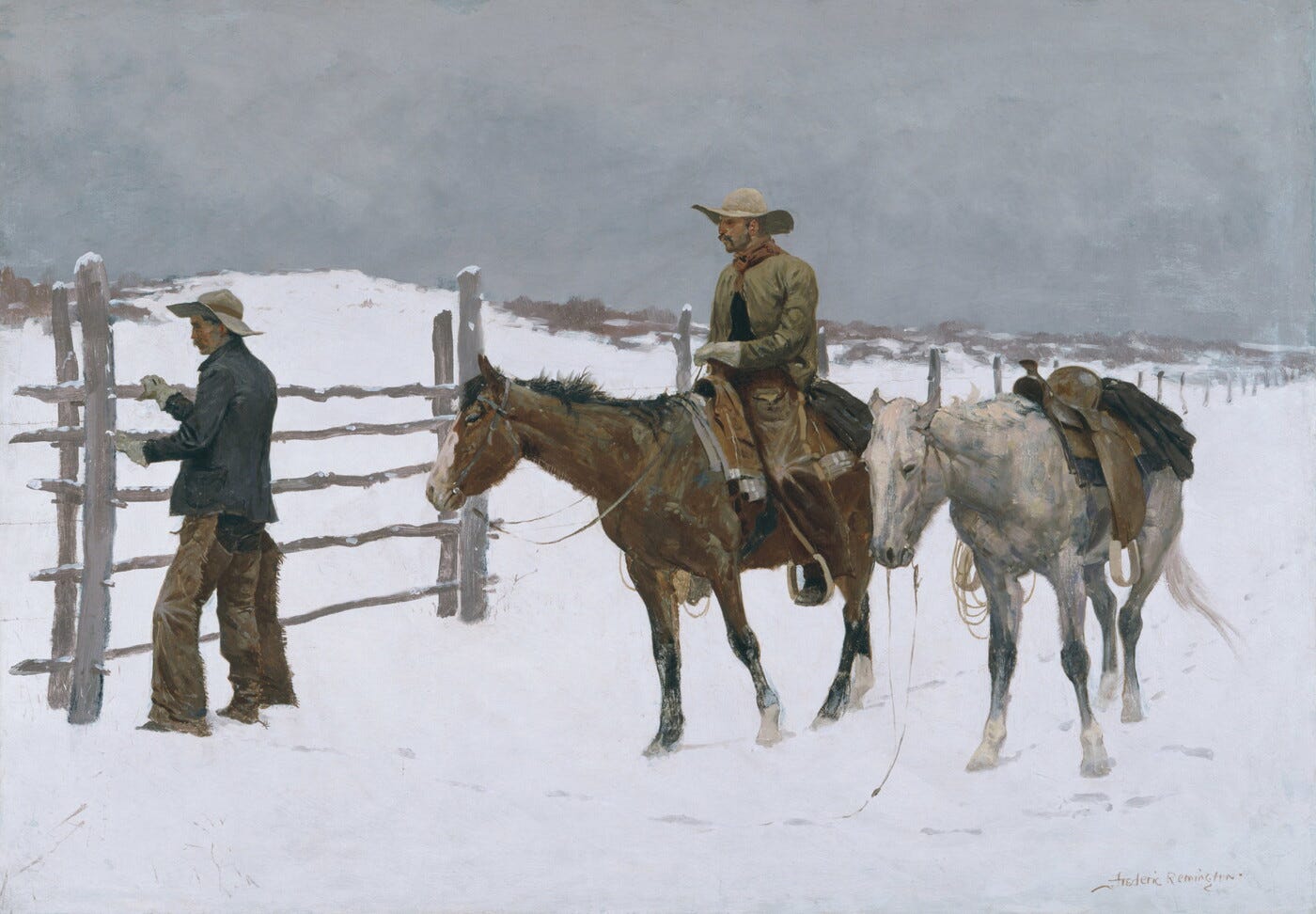The Last Kind Words Saloon
Once I got bitten by the journalism bug there was nothing to stop me from going wherever the stories took me, which was pretty much all over our Old West as it was waning.
Larry McMurtry
The Last Kind Words Saloon is composed of vignettes, some built on each other; others stand out like a lone tree on the barren plains with no greater significance than to illustrate the death of the old west—at least that’s what I suppose since McMurtry said he wrote the novel as “an end-of-the-west western.” One such episode is of a Comanche uprising. The leaders are caught and punished. But the scene doesn’t fit into the larger narrative arch, nor doesn’t it necessarily point to the death of the west (a theme McMurtry also wanted—and failed—to get across in Lonesome Dove). The novel isn’t plot driven; it doesn’t even have a climax (unless the epilogue serves as one—“Nellie’s Visits”—which represents the best writing in the book). Nor is the novel character driven. Some characters are disposed of as soon as they are introduced. Some seem to have no purpose whatsoever. And of those who endure—and who the novel is structured around—fad away by the narrative’s end without fanfare or definiteness. In my mind, this is the closes McMurtry gets to illustrating the end of the west.
Perhaps because so many of the characters in the novel have reached mythic proportions—Wyatt Earp, Doc Holliday, Charles Goodnight, Buffalo Bill Cody, and Quanah Parker—McMurtry paints them thinly and one dimensionally. The land (the plains and Palo Duro Canyon) and the towns (Long Grass and Tombstone) are barely places where life is lived; more like places to pass through . . . to who knows where.
The key to the book is the preface:
The Last Kind Words Saloon is a ballad in prose whose characters are afloat in time; their legends and their lives in history rarely match. I had the great director John Ford in mind when I wrote this book; he famously said that when you had to choose between history and legend, print the legend. And so I’ve done.
It is hard to tell whether McMurtry is serious or ironic. McMurtry is alluding to the famous line in Ford’s The Man Who Shot Liberty Valance. But there was nothing ironic in Ford’s classic movie, while irony drips from the pages of McMurtry The Last Kind Words Saloon—and nothing of legend, unless the legend McMurtry imagines is one of defaming his characters. Quanah Parker, the famed and fierce Comanche warrior is portrayed as toothless; a defeated man reserved to a reservation, living off the kindness of Charles Goodnight. Goodnight, a man of vision of grit, is portrayed somewhat true to form but also henpecked and a little frightened of women. Wyatt and Doc are painted as drunkards and bubbling gunman, when in truth Wyatt was a teetotaler and both he and Doc were as proficient with pistols as any man in the west (if not more so). The retelling of the gunfight at the O.K. Corral is abrupt and described as a mistake. McMurtry doesn’t give us the legend of the famous showdown, he gives us the history—and barely that. On top of this, the story has nothing of significance to do with a saloon (much less The Last Kind Words Saloon) and there are few kind words in the novel. Again this is more ironic than legendary.
I very much wanted to like this novel, but the book feels unfinished, like a life taken too soon or one squandered aimlessness. Perhaps this is the result not of the length of the novel (190 pages)—McMurtry’s first and wonderful book Horsemen Pass By is short—but of the length of time he worked on the novel. He wrote the book in three weeks, and it shows.



